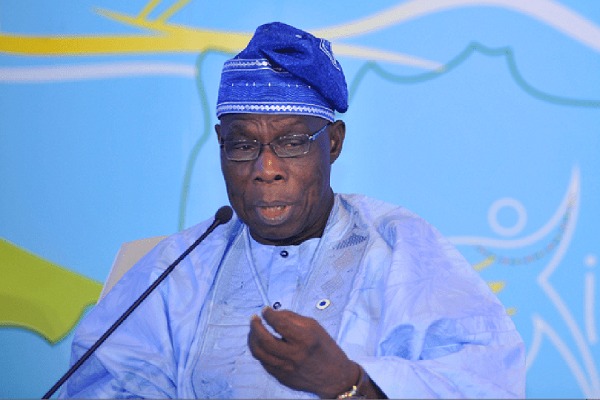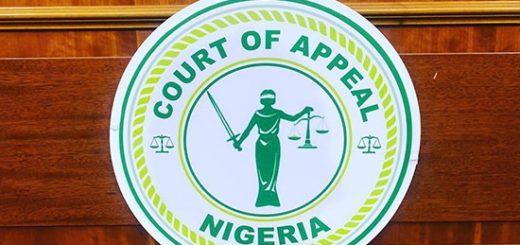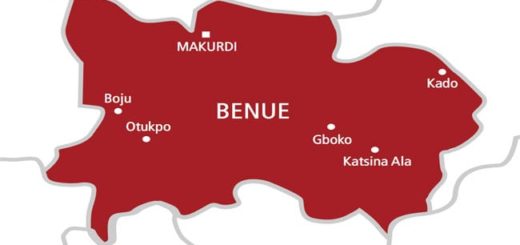Obasanjo faults N88tn debt burden, says relief mismanaged

Former President Olusegun Obasanjo says Nigeria and other African countries may find it difficult to secure debt relief considering their large debt profiles.
Obasanjo also indicated that the debt relief secured by Nigeria from the Paris Club during his tenure was allegedly mismanaged successive administrations, a situation that has plunged the country into huge and undeserved debt.
Nigeria’s public debt was N87.91tn as September, 2023, according to the Debt Management Office.
As a result, he noted that it might be impossible for the next generations of Africans to enjoy debt relief again considering the mismanagement on the continent.
In 2003, Obasanjo secured a debt relief for Nigeria. In October 2005, Nigeria and the Paris Club announced a final agreement for debt relief worth $18bn and an overall reduction of Nigeria’s debt stock by $30bn. The deal was completed on April 21, 2006, when Nigeria made its final payment, and its books were cleared of any Paris Club debt.
The former President, according to a statement on Wednesday by his Special Assistant on Media, Kehinde Akinyemi, disclosed this during an event with the 2023 awardees of the Future Africa Leaders Foundation, an initiative of Pastor Chris Oyakhilome.
Obasanjo was quoted to have said, “With the level of mismanagement of the previous debts written off for the country, it will be almost impossible for any administration to get similar gesture in the continent.”
Obasanjo described debt as a trap that no individual or country should fall into. While noting that leadership was the number one problem facing the continent, the former president added, “The coming generations will have no choice but to pay the current debt being incurred by different countries in the continent.”
Commending Oyakhilome for his effort in building leaders, he said, “A leader should be able to set good examples, be bold and courageous when making decisions, accepting mistakes and learning from them as well as having a realistic dream.”
In a related development, the former president stated that the country’s socio-economic situation could be better in four years or thereabouts with prayers and thanksgiving.
He expressed this hope at the Christian Association of Nigeria Ogun State’s 5th Thanksgiving service of his conferment as the Asiwaju Onigbagbo, Ogun State, held at the Olusegun Obasanjo Presidential Library, Abeokuta on Tuesday.
The former President was quoted to have said, “Think about it. If you have breathed the free air of God, you should have cause to thank God. So, things are bad, they may be good in a space of what, four years? and who knows for Nigeria, things that are bad today, maybe good tomorrow.
“That is our prayer and that is why we must never stop thanking God. In all situations, give thanks to God.”
According to the Debt Management Office, Nigeria’s total public debt rose to N87.91tn as of the end of the third quarter of 2023. Based on the data, total external debt stood at N31.98tn and domestic debt amounted to N55.93tn as of the period being reported.
Total domestic Federal Government debt stood at N50.19tn and states and the FCT was N5.74tn.
Commenting on the total debt, DMO said, “The servicing of the debts in addition to other debts, are clear demonstrations of the FGN’s commitment to honouring its debt obligations.”
In its Report of the Annual National Market Access Country Debt Sustainability Analysis, DMO noted that the country’s debt stock is within sustainable limits at 37.1 per cent (at the time) but is approaching a point where it has little space for borrowing.
It said, “The country’s debt stock remains sustainable under these criteria, but the borrowing space has been reduced when compared to Nigeria’s self-imposed debt limit of 40 percent set in the MTDS, 2020-2023.”
It however noted, “The projected FGN Debt Service-to-Revenue ratio at 73.5 per cent for 2023 is high and a threat to debt sustainability.
“It means that the revenue profile cannot support higher levels of borrowing. Attaining a sustainable FGN Debt Service-to-Revenue ratio would require an increase of FGN Revenue from N10.49tn projected in the 2023 Budget to about N15.5tn.”
Conscious of the dangers of continued borrowing, the Minister of Finance and the Coordinating Minister of the Economy, Wale Edun, recently stated that the Federal Government is committed to shifting focus towards revenue and away from borrowing.
At the signing of the 2024 budget, he said, “So, we’re relying less on borrowing and more on revenue, and I think you have to take the two together. I think we’re very optimistic about the improvements in revenue that will take place.”
He added, “We are bringing order to government borrowing, so ways and means is being eliminated by taking the funding that is required from the market, as opposed to from printing money by the Central Bank.”
Reacting to Obasanjo’s comment, economists and university dons blamed the Federal Government for re-accumulating large debt after the effort of the former president.
The Chief Executive Officer, Cowry Asset Management Limited, Johnson Chukwu, stated that the debt previously forgiven by the country has been re-accumulated.
He said, “We have been like a drunkard who went to the bar and paid up his bill, then went back drinking and re-acquiring the debt back, even beyond what it was before.
“Our expenditure condition is an issue as we continually incur more expenses than revenue, hence failing to balance our budget. The budget requires that it should not be more than 3 per cent of the Gross Domestic Product, but we have continued to go beyond that, also we have been borrowing from the Central Bank of Nigeria as can be seen from the N20.7n that was securitised, and now N7.3tn that was also secruritised.
Chukwu stated that, over the past year, the country had securitised approximately N30tn because of incurring more expenses than generating revenue.
He added, “We have been incurring more expenses than our revenue. In the first nine months of the year, the total government’s revenue was N8.65tn, at the same time expenditure was N8.7tn, hence we have incurred a deficit of about N4trn in the first 9 months of 2023.”
The economist advised that the Federal Government should make sure expenditure is not higher than revenue.
He added, “The government expenditure should not be higher than the government revenue. And any kobo borrowed by the government must only be channeled to capital projects, this way it would put the government in check on increasing their expenditure without increasing their revenue.”
Also speaking, the Chief Executive Officer, Centre for The Promotion of Private Enterprise, Dr Muda Yusuf, said debt sustainability was one of the biggest risks to the Nigerian economy.
He said, “It is largely a legacy problem driven by poor fiscal management compounded by the global economic downturn, especially the 2020 pandemic. The previous administration contributed significantly to the ballooning of the national debt.”
He noted that Nigeria’s debt has grown over time and has been particularly worsened by the securitisation of CBN ways and means financing by the 9th National Assembly at the twilight of the former administration.
Yusuf described that the consequences of the accumulation had been a legacy of a huge debt service burden that surpassed capital expenditure over the years.
He added, “Hopefully, the current reforms by the Tinubu administration will correct this anomaly. But it will take time. We have seen some improvements in revenue growth following the fuel subsidy removal and the gradual normalisation of the foreign exchange regime. But more needs to be done to moderate the cost of governance.
“It is also comforting that 63.6 per cent of the debts are domestic while 36.4 per cent are foreign. It is also worthy of note that almost 50 per cent of external debts are multilateral debts, which are typically more concessionary. But the commercial debt component is worrisome at 36.4 per cent of total external debt. It poses a major external sector risk. The good news, however, is that some progress is being made in deepening fiscal consolidation under the current administration. The fiscal deficit is gradually trending downwards.”
A professor of Economics at Lagos Business School, Adi Bongo, agreed with the former president.
He said, “Obasanjo got us debt relief in 2005. We gained debt forgiveness from our creditors through the agency of the finance minister and coordinating minister of the economy, Dr Ngozi Okonjo-Iweala. They used their contacts globally, it wasn’t just technicalities that got us off the hook, they put their brands, and their reputation on the line and I think that was what worked in our favor. The creditors looked at the commitment and the credibility of the actors in those days.
“That debt relief was mismanaged because (former president, Goodluck) Jonathan did not sustain it or sustain it in a very limited way. Buhari wasted all the efforts of those years. Those effects were undermined by the Buhari administration, which is what the current administration has inherited.
“From a prudent, fiduciary fiscal system, we now have a culture of profligacy that has become very pervasive in the system. It is on that ground that Obasanjo is saying it will be difficult to free ourselves of the morass that we have been thrown into by the last regime and from all indications with the things that are going on with the current administration. We do not look like we can be out of the quagmire. We do not command the same level of integrity, credibility, and respect as Obasanjo and his team,”
Bongo added that no creditor would be willing to consider Nigeria based on technicalities, saying, “Nobody can consider us on any technicalities. There was something Obasanjo did; prudent financial management, and prudent fiscal planning, Obasanjo implemented certain reforms that sent positive signals to the international community. It signaled the Obasanjo’s commitment to good governance.”
However, a facilitator with the Nigerian Economic Summit Group, Dr Ikenna Nwaosu, stated “It is a generalisation without specifics because you cannot say that everybody is guilty. So, he has to give specifics and where it happened.
“Specifics as to which leader and actions led to that. You cannot say to everybody that came after him that is my answer. So we can’t comment effectively without having that information. It is a generalisation without specifics, so it doesn’t give room for informed comment.”













